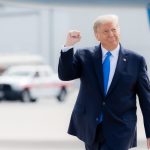In a whirlwind of legal drama, Elon Musk has found himself in a legal pickle, and this time, it’s not just Tesla’s stock price that’s on the line. Three separate lawsuits have been launched against Musk, primarily targeting his role in the newly formed Department of Government Efficiency, nicknamed DOGE. Critics argue that the organization has violated transparency laws and the hiring practices typically expected in governmental operations. The lawsuits have stoked the fires of debate, rallying both supporters and detractors around Musk’s ambitious project.
The aim of DOGE, spearheaded by Musk, is to streamline government processes and root out wasteful spending. However, bureaucrats have not taken kindly to the potential disruption of their cozy status quo. With laws dating back over half a century being invoked, there’s a considerable uproar about how advisory committees should be run, demanding adherence to transparency and balance—something they claim DOGE lacks. When it comes to government, it seems some folks are more interested in keeping their jobs rather than cutting unnecessary expenses.
Musk, known for his innovative ideas and unyielding spirit, finds himself at the center of this storm. Experts believe that despite the lawsuits, the real question lies in how DOGE is structured. If it turns out that the committee can effectively suggest cuts to the bloated bureaucracy, Musk might just prove the skeptics wrong. His knack for systems and operations might be just what the government needs to trim down those costly regulations and inefficient spending. After all, if anyone can manage the intricate gears of a government machine, it’s Musk, who juggles everything from rockets to electric vehicles like a seasoned circus performer.
Yet, this is not the only legal battle taking shape in this political arena. The executive order regarding birthright citizenship that has recently been signed is also generating considerable buzz. This move aims to reconsider the long-standing principle that anyone born on U.S. soil automatically becomes a citizen, regardless of their parent’s legal status. The implications of this executive order could echo throughout the halls of power for many years to come. Trump has set off a legal firestorm by questioning whether children of parents who are in the country illegally should be granted citizenship, igniting a heated debate around the 14th Amendment.
Many observers believe that this constitutional tug-of-war may lead to a prolonged legal battle in the courts, with outcomes hanging in the balance. Supporters of the original intent of the 14th Amendment argue that it was designed to ensure citizenship for formerly enslaved individuals. However, opponents argue that it has been misapplied in the context of modern immigration. Just like a soap opera, this unfolding drama will have plenty of plot twists as legal minds clash over the fundamental principles at stake.
As these legal challenges unfurl, they will undoubtedly be met with passionate discussions among lawmakers and the public alike. While Elon Musk may have a flair for innovative solutions, the machinations of government often move at a snail’s pace. With so many players involved, this saga has all the ingredients of a classic political thriller. Only time will tell if Musk and his vision for a streamlined, efficient government prevail against bureaucratic resistance or if the lawsuits will serve to quash his ambitions. One thing is for sure—this soap opera is just getting started, and it promises to keep audiences on the edge of their seats!




